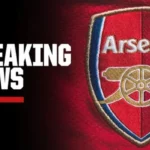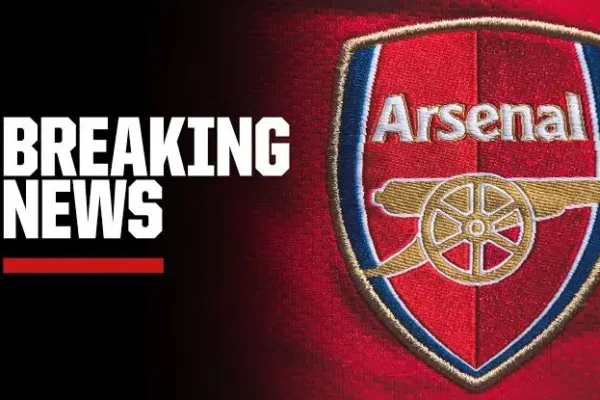Manchester United’s summer transfer window has been a whirlwind. Multiple departures, audacious bids, and a flurry of last-minute deals have dominated headlines. Amid all the chaos, one name has stubbornly refused to follow the trend: Tyrell Malacia. The Dutch left-back remains the final member of what fans have jokingly dubbed the “Bomb Squad,” the contingent of players deemed surplus to requirements under Rúben Amorim.
As it stands, United are still exploring exit options for Malacia. The club is reportedly willing to let him leave for a league where the transfer window remains open, providing some flexibility for both the player and potential suitors. Yet the ultimate decision rests with Amorim, who has the final say on whether the 26-year-old stays or departs.
The Dutch Left-Back’s Situation
Malacia joined United with high expectations, known for his pace, attacking ability, and defensive awareness. However, over the past season, he struggled to consistently meet the standards required at Old Trafford. Questions about his positioning, decision-making, and contribution to team balance emerged, particularly when the side faced high-caliber opponents.
This has led to speculation about his future, with several clubs reportedly expressing interest in taking him on loan or even permanently. An attempt to send him on loan to Elche was confirmed on deadline day to have fallen through, leaving Malacia in a state of limbo.
The ‘Bomb Squad’ Context
For context, the “Bomb Squad” at Manchester United refers to a group of players that the club has deemed expendable, often due to underperformance, tactical misfit, or surplus to requirements. Over the summer, several squad members were successfully moved on, either through sales or loans, allowing the club to restructure and create space for new signings aligned with Amorim’s vision.
Malacia, however, is the last man standing in this group. His position at left-back overlaps with key players like Luke Shaw, who has regained form and match fitness, making Malacia’s first-team opportunities even more limited. This combination of squad depth and performance concerns has kept him on the transfer radar.
Transfer Market Dynamics
Manchester United are navigating a tricky landscape. With the transfer window closed in most top leagues, opportunities for outgoing moves are limited. Yet the club remains open to sending Malacia to countries where windows are still active, such as Turkey or certain Eastern European leagues.
From a financial standpoint, United would likely prefer a permanent sale but are open to loan arrangements that alleviate wage costs while allowing the player to gain minutes elsewhere. Any move will depend heavily on Amorim’s assessment: whether Malacia can still contribute effectively or if parting ways is the best solution for both parties.
Tactical Considerations
Amorim’s decision will not be based purely on finances or player preference. Tactical fit is key. United’s left-back role under Amorim demands versatility: the ability to overlap in attack, support midfield transitions, and defend resolutely against swift wingers.
Malacia’s style, while promising on paper, has occasionally left gaps defensively and failed to consistently support the team’s forward momentum. These tactical concerns likely contributed to the club’s hesitation in finalizing a transfer earlier in the summer.
Malacia’s Career Perspective
For the player, a move is more than just a change of scenery. At 26, Malacia is entering the peak years of his career. Regular playing time is crucial, both to maintain form and to remain on the radar for international duty with the Netherlands.
Remaining at United without a clear role could hinder his development and market value. A strategic loan or transfer to a club where he can play week in, week out could reinvigorate his career, provide stability, and potentially open doors for a future return to top-tier European football.
Fans and Public Perception
Supporters have watched this saga unfold with a mix of amusement and frustration. On social media, the term “last man standing in the Bomb Squad” has circulated widely, reflecting both the humor and impatience of fans waiting to see the club tidy up its squad.
While some United fans sympathize with Malacia, recognizing that not every signing adapts quickly, others see his potential departure as necessary for squad harmony and tactical clarity. Either way, his exit seems increasingly likely unless Amorim decides to reintegrate him into the first-team plans.
Potential Destinations
Should United agree to a transfer, Malacia could find opportunities in multiple markets:
- La Liga: Teams seeking a defensively solid left-back with attacking capabilities could provide him playing time.
- Eredivisie: Returning to the Netherlands could rejuvenate his confidence and maintain national team visibility.
- Turkish Süper Lig: A growing destination for Premier League players, offering competitive wages and the chance to experience European competition.
Any move would aim to strike a balance: United offload a surplus player, Malacia gains minutes, and the receiving club benefits from a player with top-tier experience.
Final Thoughts
Tyrell Malacia’s situation encapsulates the challenges of squad management at elite clubs. He remains talented and capable but currently misaligned with Manchester United’s tactical and performance objectives. The “Bomb Squad” label, while humorous, underscores the need for decisive squad restructuring—a process still in motion.
For fans, the hope is twofold: that United manage the transfer smartly, and that Malacia finds a club where he can thrive. For Amorim, the decision balances immediate team needs, long-term planning, and player welfare.




